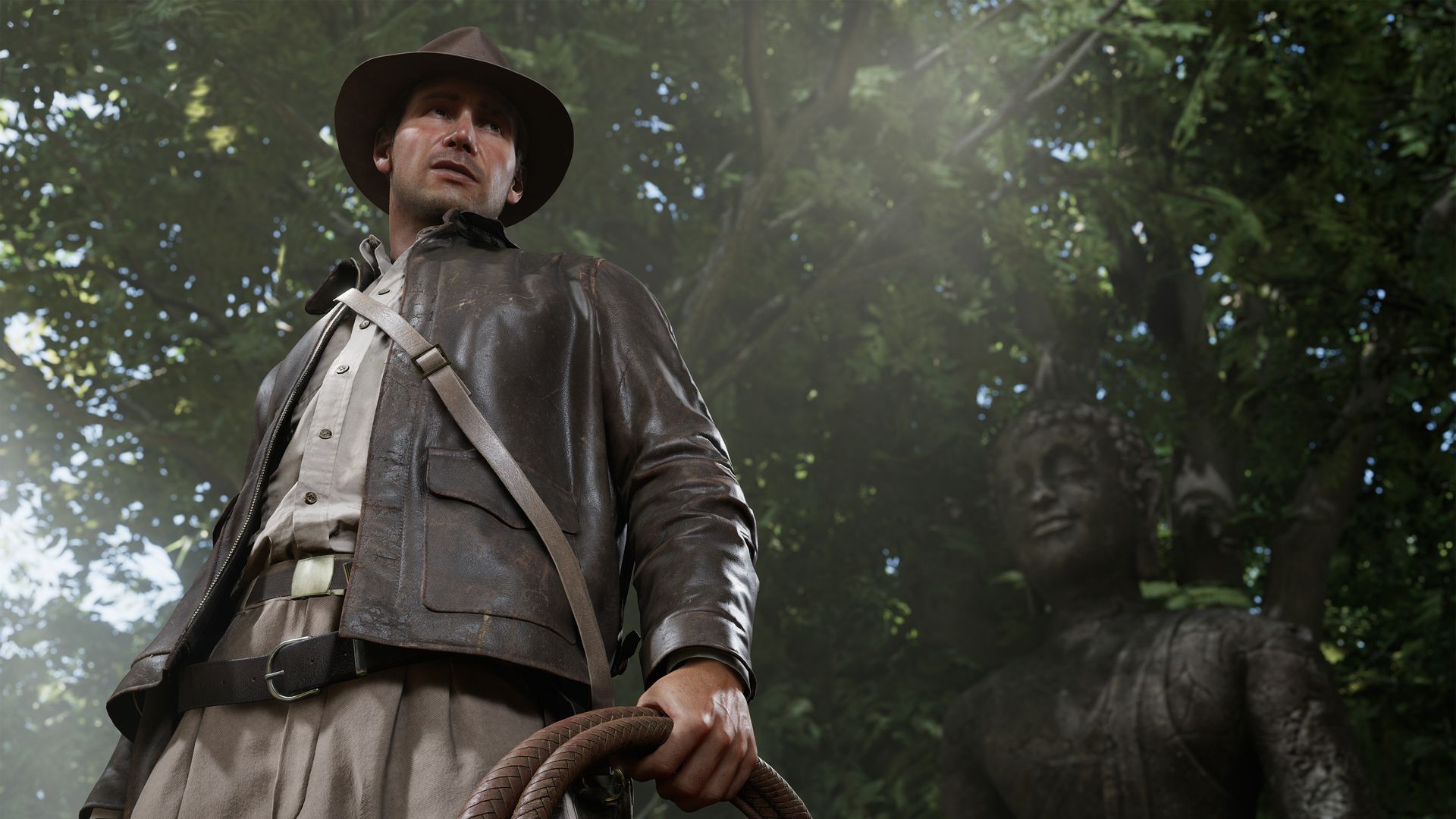
I think many gamers of a certain age have an ingrained skepticism when it comes to video games based on existing franchises. For as many movies, books, and TV shows that could potentially make a great video game, there are as many attempts that bore staggering failures. Whether it's classic cock ups like Superman 64 from the late 90s or more recent failings like Suicide Squad, there seems to be no shortage of license holders who want to make a quick buck without giving the source material the love and attention it deserves.
That's where Machine Games steps in with Indiana Jones and the Great Circle, taking the reins over one franchise that has quite recently seen its fair share of mismanagement. The classic trilogy helped propel Harrison Ford to immortality, playing the titular Indiana Jones, an archaeologist whose devotion to history lands him in the firing line between supernatural apocrypha and evil dictatorial regimes that seek their esoteric powers. Indiana Jones inspired a huge wave of creators and video games, too. Tomb Raider, Uncharted, and various others lend their roots to the famed trilogy. I think recent memory of Indiana Jones revolves around the subsequent two additional movies that, at least, failed to live up to the legacy set by their predecessors, to put it nicely.
As a fan of Indiana Jones, it was with all this cynicism and doubt for the franchise that I donned a high-def classic fedora and took a leap of faith into Machine Games' Indiana Jones and the Great Circle.
I left the preview event humbled and repentant, having my effrontery to doubt the creators of Wolfenstein: The New Order crushed beneath a gigantic rolling prop boulder.
With Indiana Jones and the Great Circle, Machine Games proves beyond doubt its capacity to take the essence of a classic and reinvigorate it for a modern audience — a skill that seems wholly lacking in modern Hollywood, I might add. Wolfenstein was no fluke, and Indiana Jones and the Great Circle went from being a vaguery in my personal upcoming Xbox games list to sitting right up there with Stalker 2 among my most anticipated games.
Indiana Jones and the Great Circle will be released exclusively for Xbox Game Pass, Xbox Series X, Xbox Series S, and Windows gaming PCs on December 9, 2024, with a PlayStation 5 version arriving a little later in 2025.
Machine Games understands the essence of Indiana better than Hollywood does
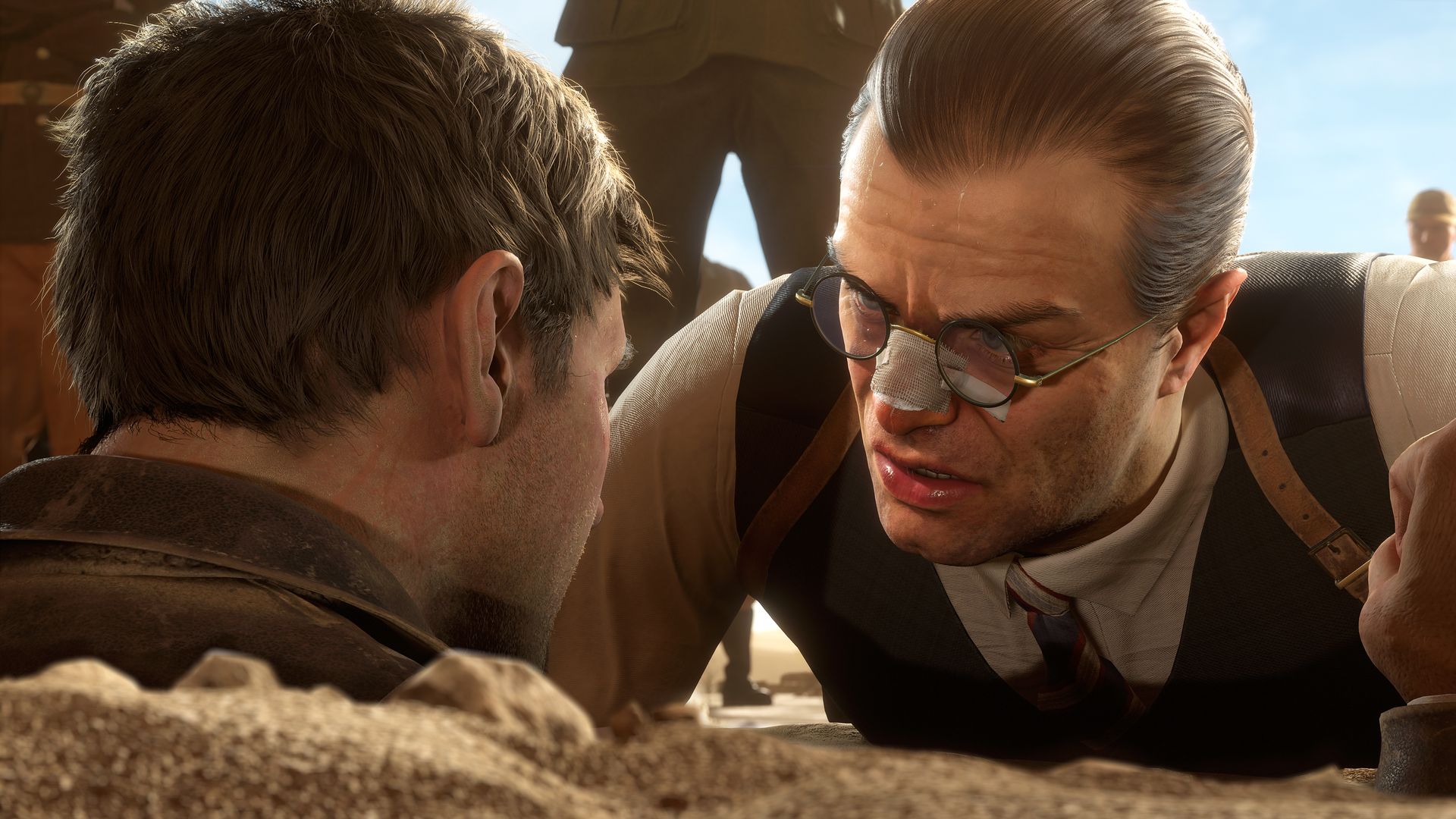
In my 2 to 3 hours with Indiana Jones and the Great Circle, I felt a sense of authenticity and nostalgia that was almost completely missing from the fourth movie. I mentioned in the intro that Indiana Jones has been a bit of a mishandled movie franchise, with the two more recent movies not reaching the heights of the classics for whatever reason. Capturing that sense of magic and adventure for something that means so much to so many must've been a daunting task for Machine Games, but I'm happy to report that they've absolutely nailed it — at least so far.
The game is set between the events of Raiders of the Lost Ark and The Last Crusade in 1937. In Machine Games' traditional fashion, the central antagonists are the forces of fascism, with the Nazi regime and Mussolini's PNF taking up their roles as well-deserving punching bags.
The game's intro sets the scene with style and confidence as Indiana wakes up in the iconic Marshall College to the sounds of a break-in. Assuming it to be wayward students, Indiana happens upon a leather-clad 8-foot titan of a man who has taken to smashing up an exhibit of some of the college's displayed artifacts.
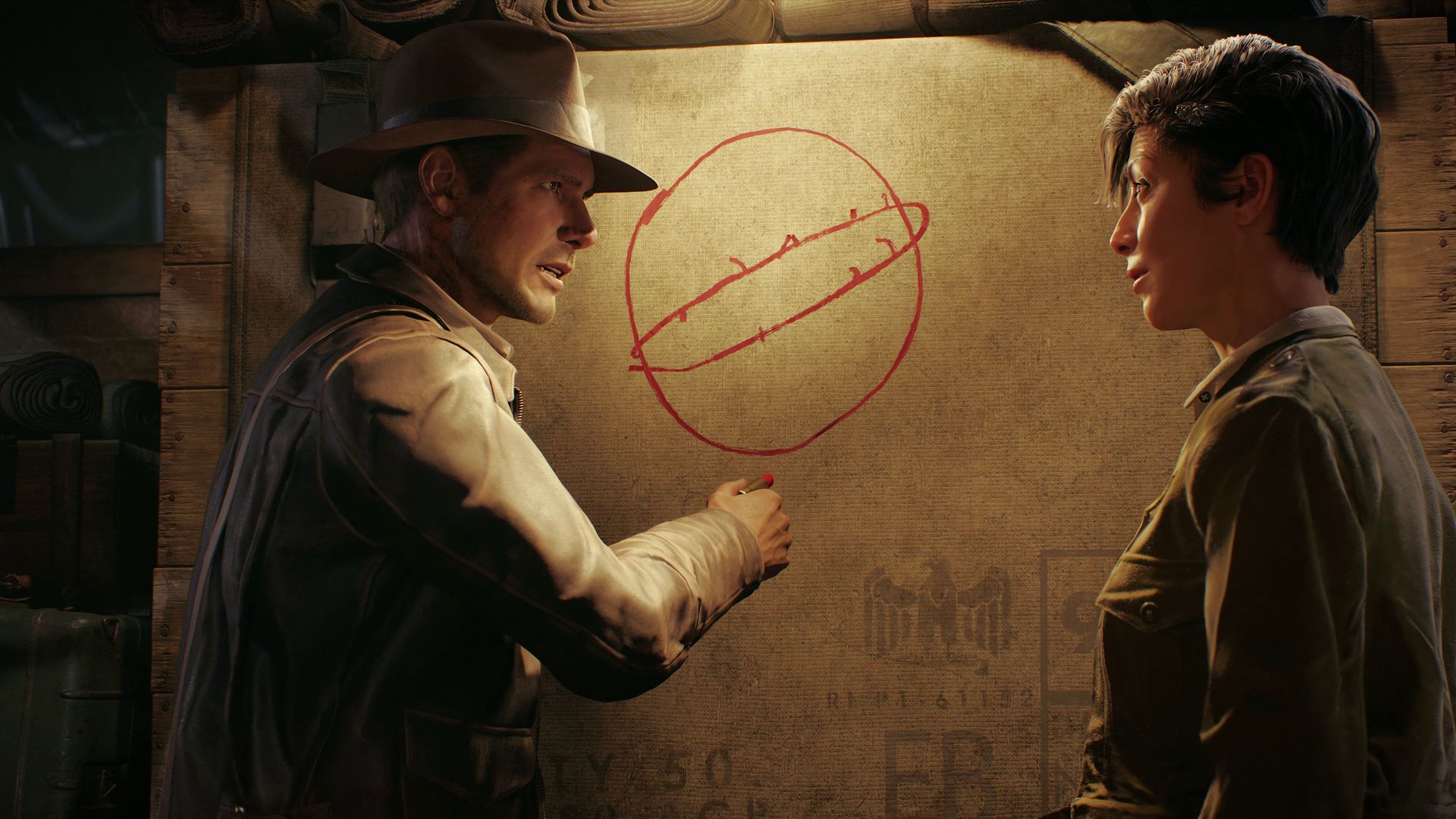
After being on the receiving end of a stiff beat down, Indiana Jones teams up with Marcus Brodie to discover that the mysterious colossal stole an unassuming burial vase from ancient Egypt depicting a cat. In the mess left behind, Indiana discovers evidence that the Vatican's archaeological commission might somehow be involved. Intrigued, Indiana Jones packs up for another adventure.
It was during these initial stages of the game that I really got a sense that Machine Games knows exactly what they're doing with Indiana Jones and that the company truly understands the essence of the franchise. Marshall College was recreated in loving detail, and Troy Baker's delivery of Harrison Ford's iconic tones is nothing short of dark vocal wizardry.
We'll get into combat a bit more in the next section, but here I want to talk about how Machine Games develops Indiana Jones' immersion beyond beating Nazis to a pulp because so much of what makes Indiana Indiana can be found in the archaeology and investigative aspects of the game. And I think, well and truly, it might not appeal to everyone here, but this is absolutely what an Indiana Jones "simulation" game should look like, in my view.
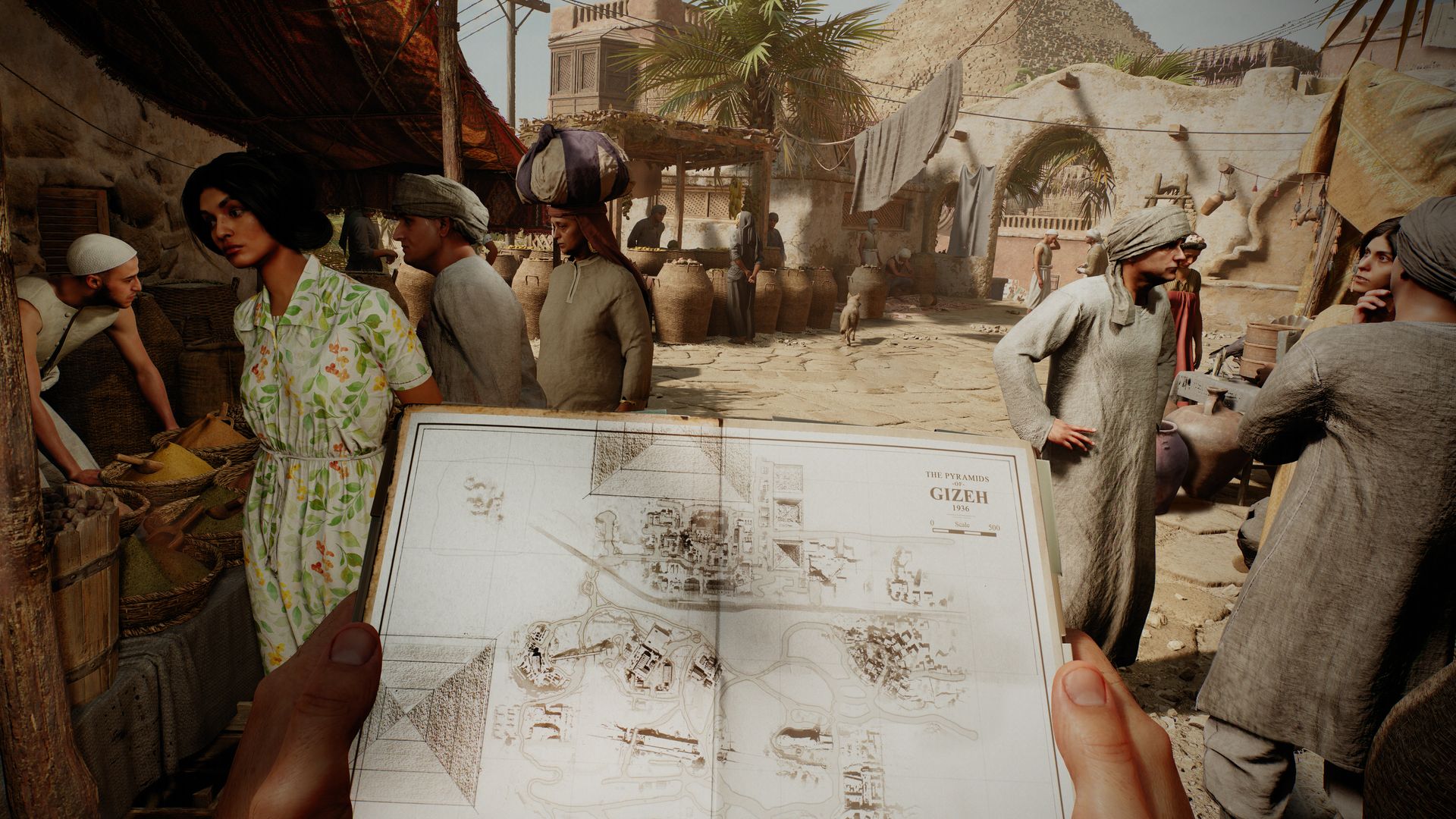
Indiana Jones and the Great Circle is an incredibly interactive game. Machine Games seemed to be acutely aware of the expectations some might have for a studio known for the blisteringly paced violence of Wolfenstein: The New Order while also being careful to stay faithful to what Indiana Jones represents. He's not a super soldier, but ultimately, he's an archaeologist. The game revolves heavily around investigation, but that doesn't mean it needs to lack interactivity.
Everything from turning keys in a door lock to manipulating your in-game map feels tactile and intended to bring you into Indiana's world. The first-person viewpoint feels exceedingly deliberate and well-adopted to that end since a lot of what you will be doing is manipulating objects, reading manuscripts, and getting up close with puzzle details. Light and shadow play a huge role, too, since you'll be stalking catacombs and sneaking into military bases in the moonlight. The simple act of acquiring your lighter felt like a big moment while playing, opening up many optional areas and puzzles that were previously shrouded (literally) in darkness, almost with metroidvania-style backtracking.
Indeed, completionists are looking at around 30~ hours for a single playthrough, uncovering every secret the game has to offer, and there are tons. The demo space took us to the Great Pyramid of Giza, where the Nazis and their allies are, once again, looking for (potentially) supernatural artifacts. Even in this single area, there were tons of hidden objectives, mini-puzzles, side quests to find, and NPCs to talk to. The puzzles are genuinely puzzling, too. I'm embarrassed to admit I wasted about 15 minutes on one of the game's lockbox puzzles, but I was rewarded with collectibles and ammo for my cognitive turmoil.
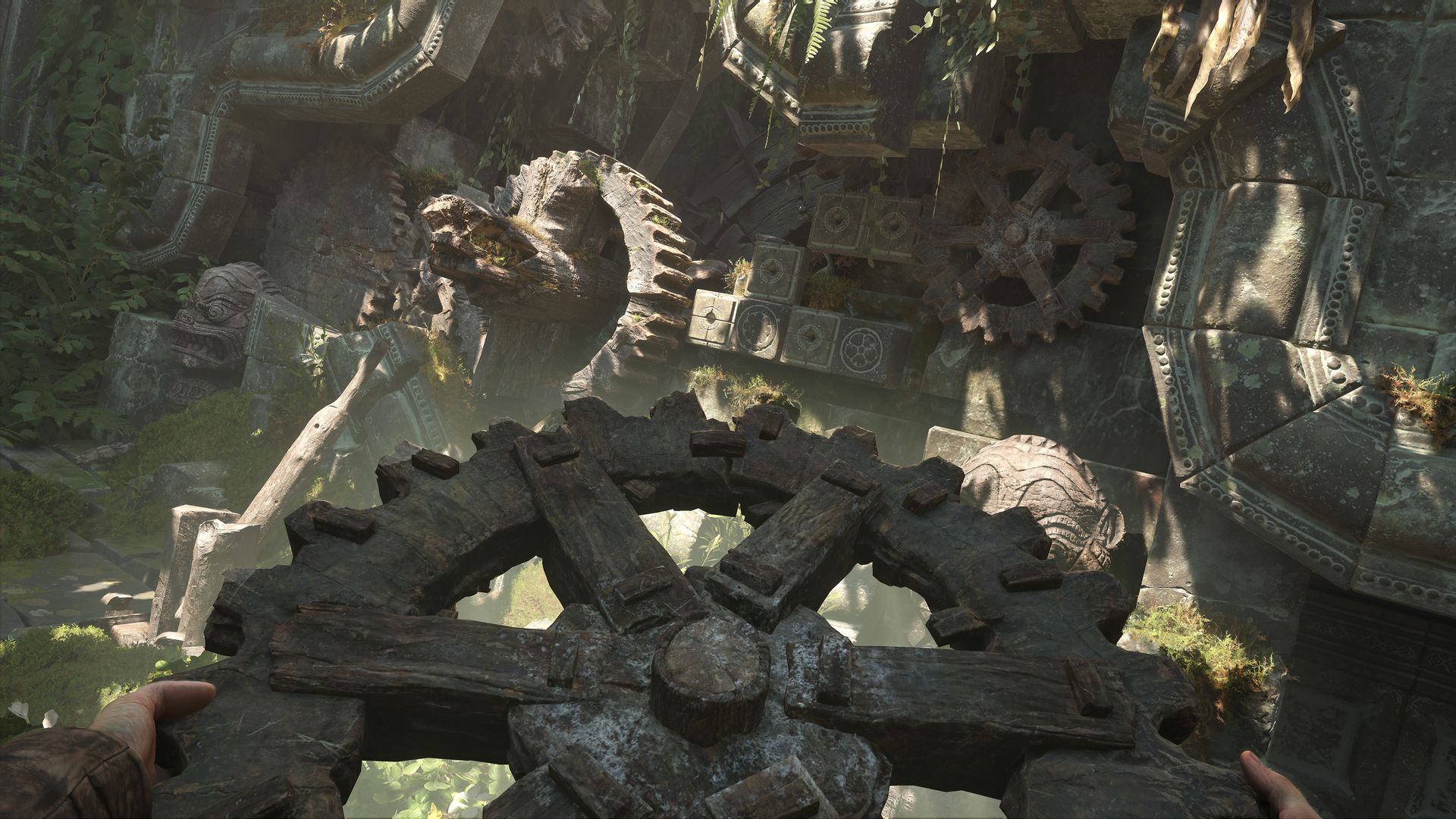
The game definitely gave me a vibe of L.A. Noire when I played it, where combat is exciting and tight when it emerges — but ultimately doesn't represent all the game is. L.A. Noire, too, revolved largely around investigative play and the overarching mysteries woven expertly throughout the central narrative. You're not exactly forced to constantly wrap your head in knots trying to figure out complex puzzles, though. If you fancy it, Indiana's vintage pocket Kodak camera can offer hints to help you when you get stumped. But figuring things out on your own gives you that Indiana-like "eureka" moment that is well worth spending at least some time chasing. It also ties well into the game's camera mode as well, of course.
Indeed, I get the impression there will be plenty of opportunities for scenic photography sessions through Indiana Jones and the Great Circle. I haven't visited the Great Pyramid in real life, but the vista the demo build introduced to me really made me want to call up a travel agent. Each area will have a centralized main story mystery to solve, which may include sneaking into military outposts to acquire special artifacts, which then give you access to tombs replete with deadly traps, puzzles, and maybe even snakes. While moving between the main points of interest, new side objectives may present themselves, offering opportunities for hunting down collectibles or magazines that can reward you with new perks and combat skills.
Beyond the main "hub" type of small open-world areas, Indiana Jones and the Great Circle is connected with linear sections that can foster those more scripted, epic setpiece moments. The Great Pyramid area was more open, with archaeological dig sites, Nazi military outposts, and village hubs dotted around for exploration. Traversing these areas isn't always safe to do, however. But much like in Raiders and the Last Crusade, Indiana can acquire disguises to slip between the cracks. Even the game's connective, cinematic linear areas were quite wide with opportunities for stealthy play and creative combat highs — which we'll get into in more depth shortly.
Executive Producer Todd Howard (of Fallout and Elder Scrolls fame) reportedly had the plan for this game down for some years, and what I've experienced so far represents a clear love letter from a team that quite intimately knows what Indiana Jones truly is.
If Tomb Raider is Indiana Jones as action adventure, The Great Circle is Indiana Jones as an immersive action simulator
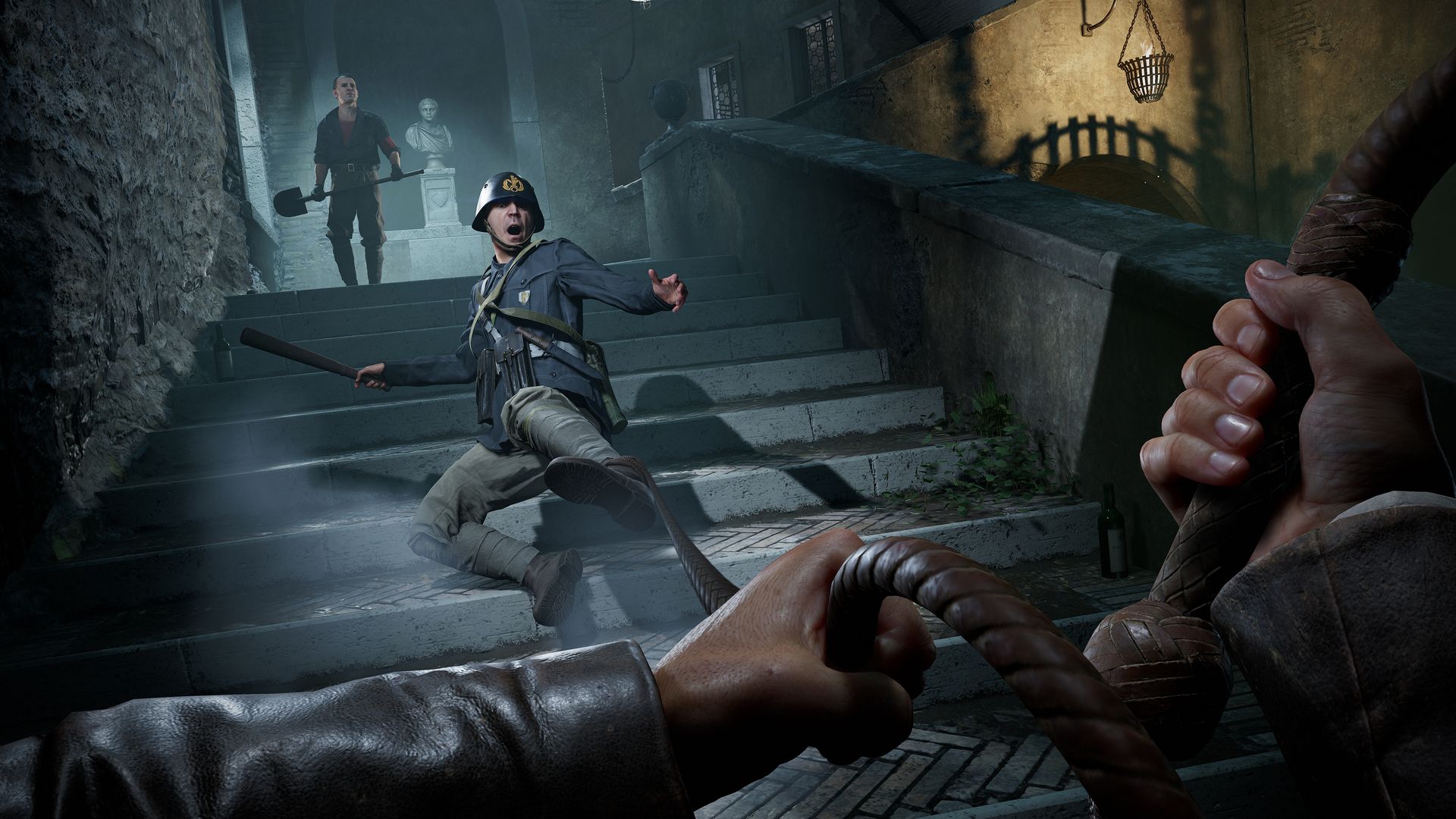
Video games don't always translate well to film, and films don't always translate well to video games. For Indiana Jones, you could argue this is particularly true.
Indiana Jones is not a super soldier; he's not B.J. from Machine Games' Wolfenstein series. He's not known for carrying an arsenal of different types of guns, and he doesn't have super-human powers nor supernatural abilities. He's just a dude with a history book or two memorized, accompanied by a bullwhip and a 1930s revolver. On paper, you'd think this wouldn't make for a game that featured dynamic, varied gameplay on par with modern expectations, but against all the odds, Machine Games pulled it off.
At its core, Indiana Jones and the Great Circle is a stealth game, I would say, but it borrows from the dynamism of immersive sim titles to give you a wealth of environmental options for how to approach combat and enemy groups. Your typical stealth game staples like throwing objects to lure enemies take center stage, but beyond the basics, Indiana Jones rewards players' creativity for utilizing the environment to their advantage. Each area is crammed with objects, items, pitfalls, traps, and other potential solutions to overcoming the various fascists that stand between you and your prize, and I felt like I'd barely scratched the surface of the creative combat canvas unfolding before me as I played.
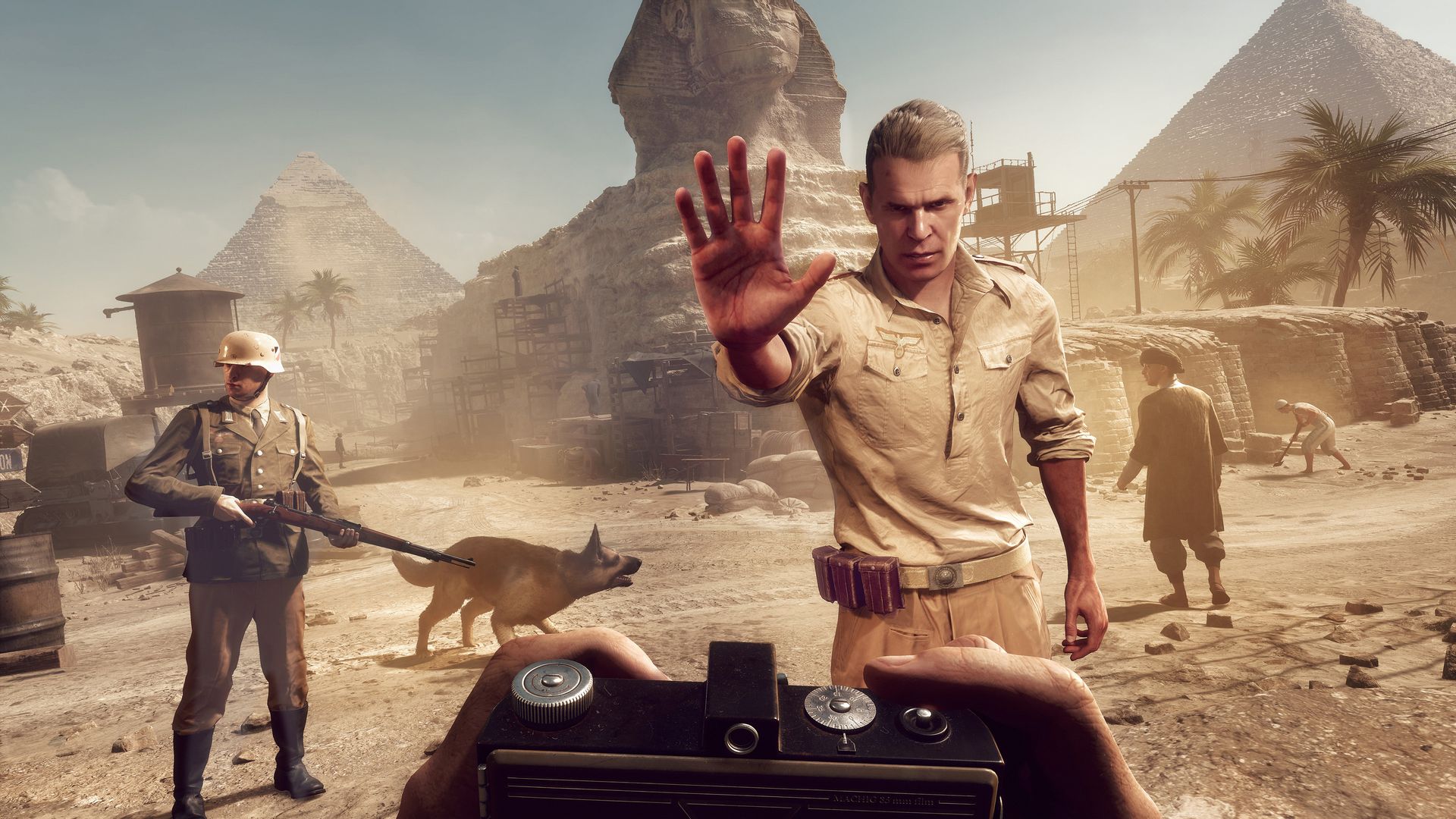
Indiana is essentially just a dude, hardly a trained soldier or spy. As such, he brings the swagger and elegance of a barroom brawler with him into combat, much as he does in the movies. The game captures the essence of this deftly.
Your weapons won't be silenced. You don't get a bow and arrow or ninja shurikens to take down enemies from afar. You will be sneaking up behind them, luring them into compromised positions, and smashing them in the head with whatever blunt objects you can find. Indeed, I dispatched enemies using shovels, umbrellas, wooden forks, frying pans, random bottles, busts, statues, and various other everyday utensils — many of which came with their own brutal and uniquely Indiana execution sequences. There's no splattering of brains or craniums here, but the unrelentingly satisfying clang of steel on skulls never gets old.
Indeed, sound plays a big part in really slamming home the Indiana feel here. The iconic snap of Indiana's knuckles on cheekbone is unmistakable when you do get into fisticuffs (and you will), and the nostalgic tones of John Williams' Indiana Jones theme roll in and roll out dynamically as combat ebbs and flows. Many of those classic 1980s sound effects return, and they'll put a huge grin on your face if you have, like I do, a ton of nostalgia for the original trilogy.
It's not all fighting and melee combat, though. Indiana Jones does get other tools, both on his person and within the environment, to dispatch nazis with increasingly hilarious creativity.
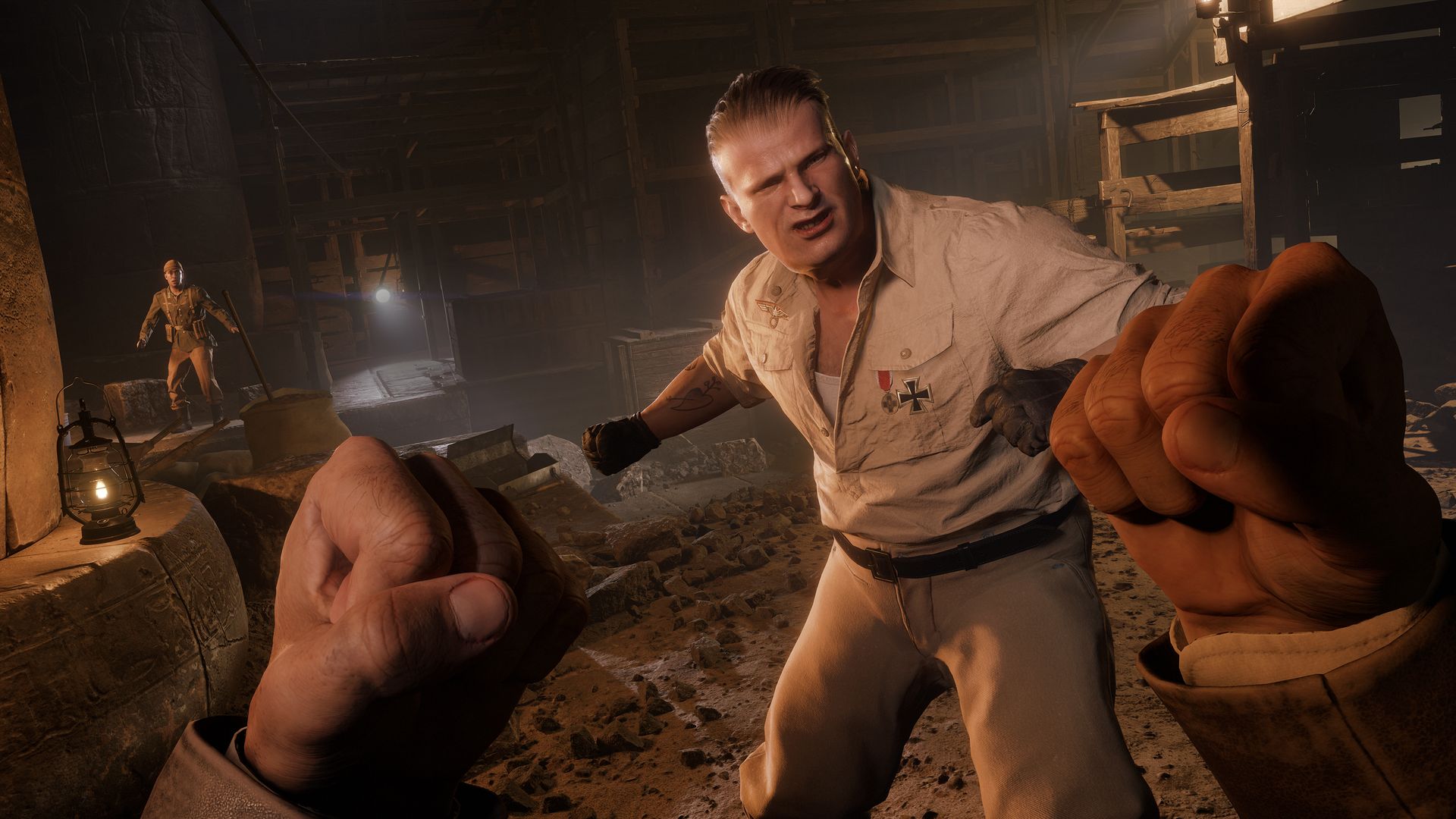
The game seems quite adept at preventing its combat loop from getting repetitive, although my time with the game was admittedly only 3 or so hours in what should be roughly around 20 hours of campaign gameplay (or anywhere up to 30 for completionists). But in the slice I experienced, there was a ton of variety offered in terms of enemy types, environmental tools, and terrain opportunities to deal with dangerous situations.
Much like in the movies, a simple violent shove can be enough to quietly and deftly remove an enemy combatant from the field. I found myself shoving nazis off balconies and ramparts and into archaeological dig ditches to remove them from play. Not every enemy is so easily beaten down, though. There were more often than not "heavies" wandering around, sometimes with dogs, too, which aren't as susceptible to simply being punched in the face. You have a number of tools to deal with these situations, too, with some being more violent than others.
Indeed, you have a revolver of your own with limited ammo, but using it will create a loud noise that will trigger other enemies to investigate your vicinity. The revolver is perhaps best used either as a last resort or in situations where you've already been discovered — and you need to quickly even the odds by leveling the playing field. There are also rifles you can find on occasion lying around too, or scavenged from your quarry. In keeping with the game's highly interactive design, these can be used as rifles but also as a makeshift baseball bat, flipped over so you can smash enemies in the head with the stock. They have a much longer range than the revolver, too, and given that some of the game's locations are very, very open, they could come in handy in certain situations.
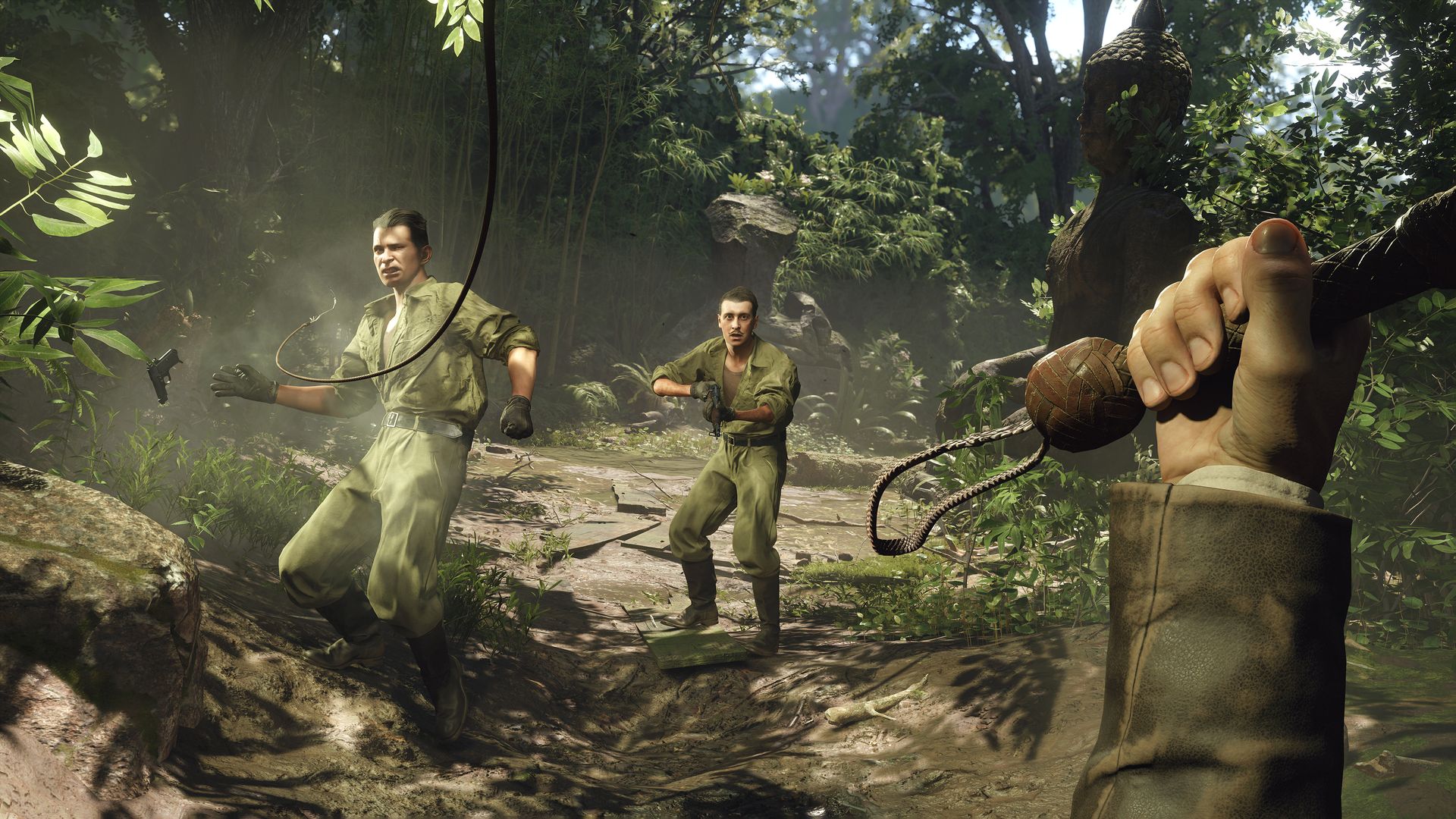
Then, there's the whip. Indiana's iconic bullwhip is a tool used for various purposes. You can use it to ascend to higher vantage points to get a drop on or avoid enemies. You can use it to traverse gaps, trigger traps, and recover items. You can also use it in combat, ripping enemy's weapons from their hands or just beating them down with it. I didn't get the opportunity to experiment with it as much as I would have liked, but I was amazed by how many options that single weapon presented to me as a player.
Indeed, I found it difficult to pry myself away from the event when our time was up. It felt like there were so many interactions between the game's tools, environment, and enemies I had still to experience and experiment with. Indiana Jones and the Great Circle approach combat with similar traditions as immersive sim-type titles, where your creativity converges with the game's tools and physics to give you that sense of cinematic realism in a dynamic, emergent way, as opposed to something more scripted and formulaic. In The Great Circle, you are Indiana Jones, and to get the most out of the game, you better act like it.
Many questions remain
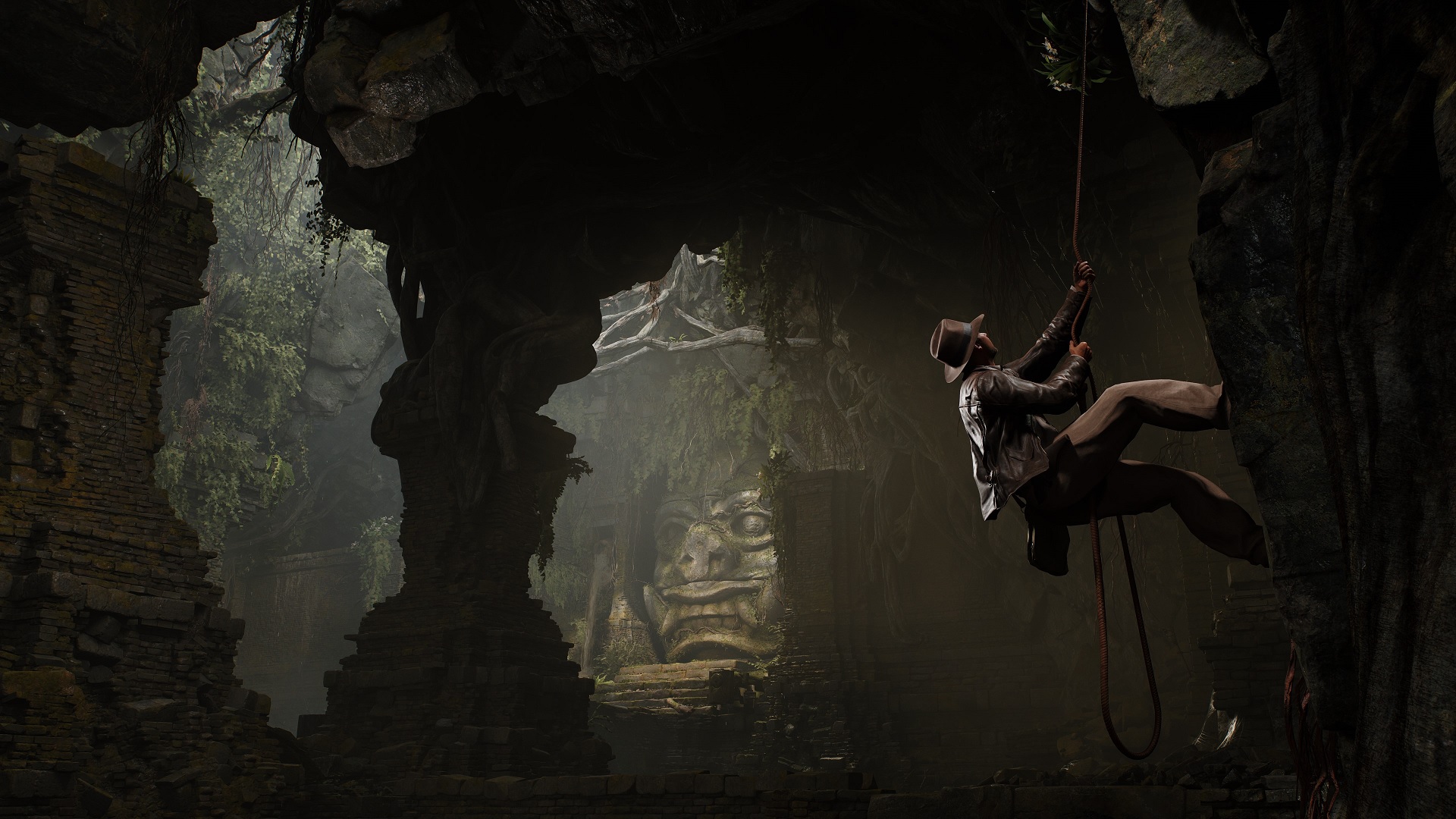

• Best Xbox / PC headsets in 2024
• Best upcoming Xbox / PC games
• Best Xbox controllers
• Best Xbox accessories
• Best small gaming PCs
• Best gaming laptops in 2024
There's no way I can answer all of my questions about Indiana Jones and the Great Circle in the space of 2-3 hours of play. Even in the brief slice I experienced, there was a vast toolkit to reward creative players and mountains of puzzles to entice aspiring archaeologists. With suitable villains and an intriguing overarching mystery to pursue, Indiana Jones and the Great Circle could end up being remembered as the true "fourth" entry in the Indiana Jones lexicon.
The demo build I played did have some rough edges to speak of. The LOD (level of detail) seemed to get stuck in a low poly state at times, and the delta in quality between main character NPCs and random environmental NPCs was quite large. I'm also curious to find out if you do eventually get more tools. While the demo build offered a ton of variety, I can see myself eventually wanting more options as the game unfolds across its beefy-sounding campaign. But those are questions for the full review, which we'll hopefully get to pen before the game's planned release date on December 9, 2024.
READ NEXT: STALKER 2 is shaping up to be a GOTY contender
If what I experienced is representative of the full, finished product, it'll be a big win for Xbox and Microsoft's gaming division, joining STALKER 2 and Call of Duty Black Ops 6 to close the year out on an incredibly strong note.
Indiana Jones and The Great Circle is hitting Xbox Series X|S and Windows gaming PCs first, with a PlayStation 5 version planned for 2025. The game will also drop day one into Xbox Game Pass, and it's shaping up very, very nicely indeed.







